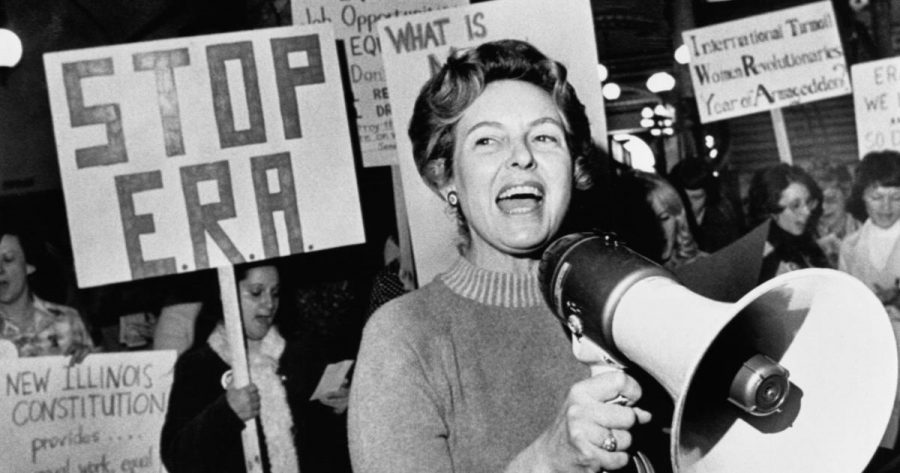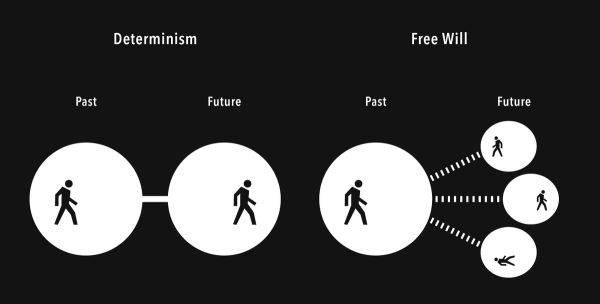The Powerful Women of the Anti-Feminist World are Feminists
TW: Brief mentions of rape, sexual assault, white nationalism, and strong antifeminist views
Conservative activists Phyllis Schlafly and Lauren Southern have never identified themselves as feminists. In fact, it’s quite the opposite. From arguing that women shouldn’t vote to believing they can’t hold positions of power, their cases are puzzling. Although there’s been opposition to feminism from both men and women, the women in the anti-feminist world are perhaps the most passionate. They seem to contradict themselves at first glance: why would they want to put themselves down? But the truth of their hypocrisy goes deeper. Conservative anti-feminist women are inherently feminist because of their desire to retain power and a voice in a male-dominated field.
Phyllis Schlafly distanced herself from the feminist movement in every way possible. After a lengthy career of campaigning in the conservative world, Schlafly came to fame through her opposition of the Equal Rights Amendment in the ‘70s. According to their website, the ERA’s motto is “equality of rights under the law shall not be denied or abridged by the United States or by any State on account of sex.” Phyllis Schlafly was the leader of “Stop ERA,” an anti-ERA group that lobbied against the amendment. Political scientists argue that Schlafly was a driving force in the ERA’s eventual defeat.
Schlafly’s drew a connection that no one else had. Her opposition to the ERA stemmed from the desire to protect married women’s rights. She was brilliant in creating an intersectional conservative platform that appealed to women’s desires and safeties. While her emphasis on women’s rights paralleled that of her feminist counterparts, she was accepted by the antifeminists because of her belief that these rights were only accessible to married mothers. Her arguments connoted that the only good woman was a wife. However, Schlafly still faced sexism from the media and her community. Consistently underestimated, she was subject to discrimination and oppression in the all-male circles of the conservative political world. Schlafly’s desire to express her opinion was inherently feminist — she needed to be on an equal level with male voices in order to be heard.
On January 28, 1976, Phyllis debated one of the most famous second wave-feminist leaders, Betty Freidan. Freidan had an outstanding life in feminism, penning The Feminine Mystique, which centered around women’s roles in industrial societies. Freidan and Schlafly’s conversation centered around the ERA, however both women had similar backgrounds. They were both married and had children. They both were women in politics. The debate even had a female moderator, making it an entirely female run event. Schlafly’s presence in the debate, whether she noted it or not, was feminist.
Decades later, Lauren Southern gained popularity in the white-nationalist and alt-right worlds. Her radical and insulting positions still didn’t protect her from harassment. In June of 2018, viewers watched as she received a slew of misogynistic comments from Proud Boys founder Gavin McInnes on his show Get Off My Lawn. The Atlantic reports that this wasn’t the end of it — McInnes continually sexually harassed Southern for months after the interview. Southern did nothing, and McInnes denied it. Despite her mistreatment in the conservative world, Southern stood by statements such as “women are not psychologically developed to hold leadership positions,” and “There is no rape culture in the West.” Yet, her prevalence in the conservative world contradicts itself. How can a woman have power in a community, yet tout that women can’t have leadership positions?
What these women have in common are their boldly feminist actions. The mainstream feminist world praises powerful women and uplifts them when they have congruent ideas; however, the very act of having an opinion and fighting for it is perhaps the most feminist thing a woman can do. It is exactly what women like Phyllis Schlafly and Lauren Southern have done. Feminism is defined by Mirriam Webster as “the theory of the political, economic, and social equality of the sexes.” For a woman to assert her political opinion in a social setting, she needs to have a voice, and thus she must have the same powers as men. Feminism is anti-establishment, and these two women go against the establishments of their respective worlds. The harassment they faced may seem unwarranted, but the very act of having an opinion is what threatens the patriarchy the most. Whether their opinions are pro-feminist or not, they cannot avoid asking for equality, or perhaps, needing it.

Grade: 12
Years on Staff: 3
Why are you writing for the Flintridge Press?
The Flintridge Press gives me an opportunity to showcase my voice as...







